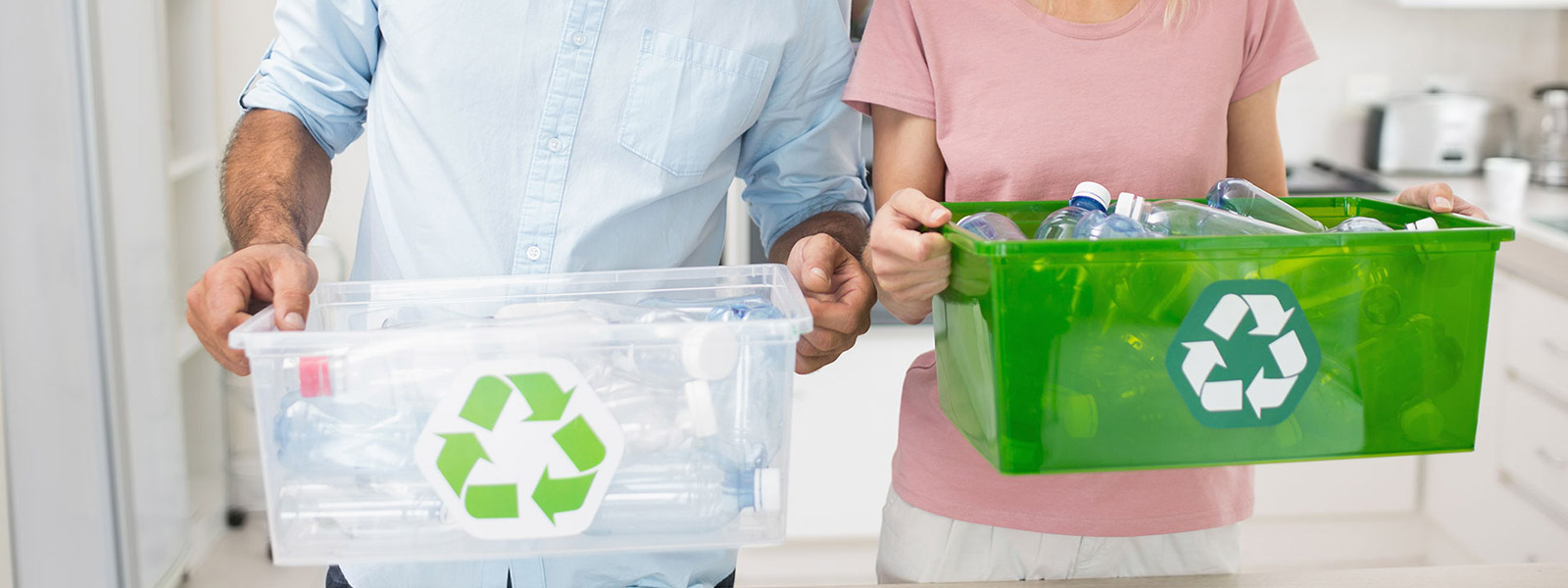Skip Hire Success: What to Do and What to Avoid
Posted on 07/06/2025
Skip Hire Success: What to Do and What to Avoid
Looking to declutter your home, manage building project waste, or simply streamline rubbish removal? Skip hire is a cost-effective, practical solution for both domestic and commercial needs. However, to ensure skip hire success, it's essential to understand best practices and potential missteps in the process.
This comprehensive guide will walk you through everything you need to know about hiring a skip. We'll address key areas such as choosing the right skip size, complying with regulations, maximizing value, and common mistakes to steer clear of. Whether you're a first-time user or looking to refine your approach, you'll find actionable tips for getting the best out of your skip hire experience.
Understanding Skip Hire: The Basics
Hiring a skip is one of the simplest ways to manage bulk waste disposal. A skip is a large metal open-topped container delivered to your location, collected and emptied by a waste management company. Read on as we clarify the process and highlight important considerations:
- What is skip hire? Engage a professional service to deliver a skip, fill it with your waste, and collect it after a designated period.
- Who uses skips? Homeowners, construction businesses, event organisers, landscapers, and offices - anyone generating bulk waste.
- Why choose skip hire? Quick, environmentally friendly, and more economical than multiple trips to the tip.
Key Types of Skips
- Mini skips: 2-3 yards - perfect for small home or garden clearances.
- Midi skips: 4-6 yards - ideal for bathroom or kitchen renovations.
- Builders skips: 6-8 yards - commonly used for commercial building projects.
- Large skips: 10-16 yards - suitable for office clear-outs and major renovations.
- Roll-on/roll-off skips: 20-40 yards - for industrial or demolition projects.

The Dos of Skip Hire Success
To optimize your skip hire experience and achieve maximum efficiency, follow these essential tips:
1. Research and Compare Skip Hire Companies
- Vet providers: Ensure they are licensed, insured, and reputable for skip hire in your area.
- Compare pricing, services, and skip types offered.
- Read reviews and check for recycling credentials.
A little homework can save money and frustration in the long run, ensuring proper waste disposal and compliance.
2. Choose the Right Skip Size
- Estimate your waste volume accurately - overfilling results in extra charges; hiring too small requires additional skips.
- Consult skip hire providers for guidance if unsure.
Tip: Most companies recommend selecting a skip one size larger than your estimate to accommodate unexpected waste.
3. Obtain Necessary Permits
- Skips placed on public highways or council land require permits (often arranged via your skip hire company).
- Apply early to avoid delays and fines.
If you plan to put a skip on your driveway or private property, permits are generally not required.
4. Use the Skip Efficiently
- Break up large items to maximize space.
- Load flat items first, then heavier waste, filling nooks and crannies for a tight pack.
- Always ensure nothing is protruding above the rim - this is illegal and unsafe.
5. Separate and Sort Waste Responsibly
- Know what can and cannot go in the skip (see list below).
- Recycle suitable materials to reduce environmental impact.
- Keep hazardous waste separate.
6. Consider Environmental Impact
- Choose companies with a strong recycling record.
- Ask where waste is processed and what percentage is diverted from landfill.
- Consider a wait-and-load skip for minimal road impact if parking/space is limited.
The Don'ts: Common Skip Hire Mistakes to Avoid
Many first-timers make simple errors that inflate costs or cause legal headaches. To avoid pitfalls, watch out for the following:
1. Don't Overload the Skip
- Never fill above the skip's rim. Overfilled skips are hazardous to transport and may be refused collection or incur hefty fines.
Pack smartly and err on the side of caution.
2. Don't Place Prohibited Items in the Skip
Most skip hire companies have clear policies on what cannot be disposed of:
- Hazardous waste (paint, solvents, asbestos, batteries)
- Electrical goods (fridges, TVs, monitors)
- Gas cylinders, tyres, medical waste, liquids
- Plasterboard (often only in mixed skips if separated and bagged)
*Check the provider's rules and, if in doubt, ask before disposal.
3. Don't Ignore Local Regulations
- Avoid hefty fines by securing permits if required.
- Don't block public footpaths, driveways, or emergency exits.
- Never light fires in or near the skip.
4. Don't Leave Waste Outside the Skip
- Fly-tipping fines apply to items left outside skips, even on private land.
- All waste must fit securely within the skip for legal collection.
5. Don't Keep the Skip Longer than Agreed
- Extensions can result in extra charges.
- Book your collection promptly once the skip is full.
Essential Tips for a Hassle-Free Skip Hire Experience
- Plan placement in advance - allow space for delivery and collection trucks, and avoid low hanging wires/branches.
- Protect driveways from scratches or dents by laying boards down before the skip arrives.
- Make arrangements for people with disabilities or limited mobility if skip blocks usual paths.
- Communicate with neighbours if the skip affects shared driveways or parking areas.
- Consider weather - skips can fill with rainwater if left uncovered for a long time.
What are the Benefits of Professional Skip Hire?
- Convenience: Single delivery and collection, no need for multiple car trips to the dump.
- Safety: Reduces hazards from piles of waste on site, especially during renovations.
- Cost-effective: Usually more affordable for bulk or ongoing waste than repeated tip visits.
- Environmentally Friendly: Reputable companies recycle your waste where possible.
- Time-saving: Speeds up clearance and project timelines.
Frequently Asked Questions for Skip Hire Success
How do I know what size skip to hire?
Estimate by considering the scope of your project. For a house clearance or medium renovation, a 6 or 8-yard skip is standard. For garden work, a 4-yard skip may suffice.
Can I put everything in a skip?
No. Hazardous materials are almost always prohibited, and many companies restrict certain items. Always check before filling your skip to avoid fines or refusal of collection.
How long can I keep the skip?
This varies by hire company. The average rental period is 7-14 days. Longer hires may incur extra charges, but flexible arrangements are possible with advance notice.
Is skip hire environmentally friendly?
When you choose a responsible, licensed provider, much of your waste is sorted and recycled. Ask your skip provider about their recycling policies for peace of mind.
What if I need to dispose of something unusual?
Contact your skip supplier before disposing of unusual or specialist waste. Items like mattresses or tyres incur extra charges or require special disposal services.

How to Ensure Your Skip Hire is a Total Success
- Start with clear goals. Know what you're disposing of and how much waste you expect.
- Choose a reputable provider. Look for experience, good customer reviews, and proper licensing.
- Pick the right size skip -- always round up if unsure.
- Secure necessary permits, especially for skips on public land.
- Set up the space for both safety and accessibility.
- Load efficiently and avoid banned materials.
- Arrange prompt collection once full.
- Follow up and request recycling data if desired.
Conclusion: Skip Hire Success is Simple with Smart Planning
Skip hire offers an incredibly convenient and eco-friendly way to manage waste from all sorts of projects. The real secret to skip hire success is simply following best practices: plan ahead, choose the right partner, and understand what's allowed. Avoid common pitfalls such as overloading, unlawful dumping, and ignoring legal requirements.
Whether you are embarking on a home renovation, clearing your garden, or handling commercial waste, your chances of a smooth skip hire experience skyrocket when you stay informed and proactive. Ultimately, with the right preparation, skip hire can save you time, money, and contribute positively to the environment.
Need help with your next skip hire? Contact your local experts for tailored advice on successful skip hire and sustainable waste disposal today!

 020 3409 4688
020 3409 4688 020 3409 4688
020 3409 4688




 House clearance
House clearance Waste Removal
Waste Removal Here at Rubbish Collection we offer an efficient and affordable house clearance at the best price. We can perform full domestic clearance in London, removing...
Here at Rubbish Collection we offer an efficient and affordable house clearance at the best price. We can perform full domestic clearance in London, removing... Waste can accumulate quickly and before you know it, it’s everywhere and taking up lots of space. If you would like it professionally removed, hire Rubbish Collection for the...
Waste can accumulate quickly and before you know it, it’s everywhere and taking up lots of space. If you would like it professionally removed, hire Rubbish Collection for the...




